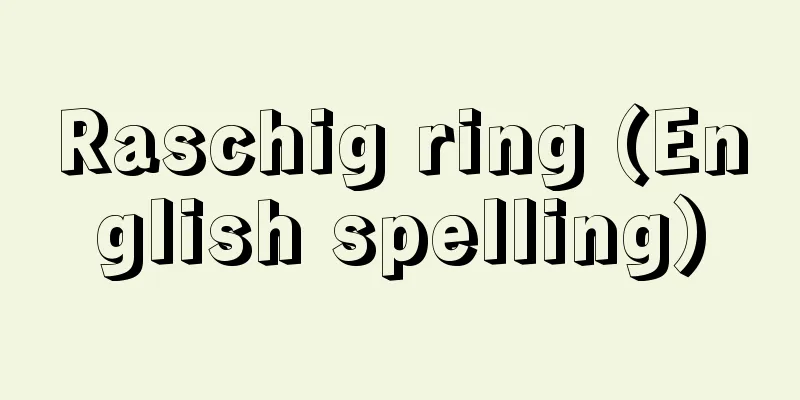Aleksandr Nikolaevich Radishchev

|
A Russian thinker and poet. Born into a wealthy aristocratic family in Moscow. After graduating from St. Petersburg's infantry school, he studied at the University of Leipzig in Germany, where he studied natural sciences, literature, and medicine. During this time he was influenced by French Enlightenment thinkers such as Voltaire and Diderot. After returning to Russia, he first worked in the Senate, then at the Finnish Division Headquarters, and took a deep interest in the Pugachev Rebellion that broke out at the time. He retired from his official position in 1775, but rejoined the Ministry of Commerce in 1777 and worked at the St. Petersburg Customs House, becoming its chief in 1790. In the mid-1780s he began writing A Journey from St. Petersburg to Moscow, an immortal classic in the history of Russian social thought, which he published anonymously in the spring of 1790. The book is written in the form of a traveler's notes and vividly describes the miserable conditions of peasants under the imperial government and the ugliness of despotism, such as peasants who were forced to work six days a week on the landlord's fields, and a villager who, unable to bear the excessive abuse and violence of a landlord and his son, beat the family to death. Catherine the Great was shocked when she read it and immediately banned it, arrested the author, and had a trial held in the presence of the empress. The author was sentenced to death, but Catherine the Great commuted the sentence to ten years of exile in Siberia. During his exile in Ilimsk, near Irkutsk, he wrote the philosophical work "On Man, His Death and Immortality" in which he developed a unique view of life and death that mixed idealism and materialism. After the death of Catherine, under Alexander's rule, Radishchev was allowed to return to the capital, where he joined the Legislative Council by order of the Tsar, but committed suicide shortly thereafter. His literary works include the ode "Freedom" (1783), the autobiographical work "The Life of F. V. Ushakov" (1787), which features a friend from his time in Leipzig as the protagonist, and the long poem "Prince Boba" (1798-1799), written after his pardon. [Nakamura Yoshikazu] "A Journey from Petersburg to Moscow" (translated by Ichiro Shibuya, 1958, Toyo Keizai Shinposha) [References] |Source: Shogakukan Encyclopedia Nipponica About Encyclopedia Nipponica Information | Legend |
|
ロシアの思想家、詩人。モスクワの富裕な貴族の家庭の生まれ。ペテルブルグの幼年学校卒業後、ドイツのライプツィヒ大学に留学、自然科学、文学、医学などを修める。この時期にボルテール、ディドロなどフランスの啓蒙(けいもう)主義思想家の影響を受けた。帰国してからまず元老院、ついでフィンランド師団司令部に勤務、おりから起こったプガチョフの暴動に深い関心を寄せた。1775年にはいったん官職を退くが、1777年ふたたび商務省に入ってペテルブルグ税関に勤め、1790年には税関長になった。1780年代の中ごろからロシア社会思想史上不朽の古典『ペテルブルグからモスクワへの旅』の執筆にかかり、1790年春にこれを匿名で出版した。これは一旅行者の手記の形で、帝政下農民たちの悲惨な状態と専制政治の醜悪さ、たとえば1週間に6日間も地主の畑の賦役に駆り出される農民、地主父子のあまりの虐待と暴行に耐えかねて、その一家を殴り殺してしまった村人などの話を生き生きと描き出したもので、これを読んで驚愕(きょうがく)したエカチェリーナ2世は、ただちにこれを発禁にするとともに、著者を逮捕し、女帝立会いのもとに審理を行わせた。判決は死刑と出たが、エカチェリーナ2世は死一等を減じて10年のシベリア流刑を命じた。イルクーツクに近いイリムスクへの流刑中、哲学的な著作『人間、その死と不死について』を執筆し、観念論と唯物論的な思想を織り交ぜた独特の死生観を展開した。エカチェリーナの死後、アレクサンドルの治世になって首都に戻ることを許されたラジーシチェフは、皇帝(ツァーリ)の命で立法委員会に加わったが、まもなく自殺を遂げた。文学作品には頌詩(しょうし)『自由』(1783)、ライプツィヒ時代の友人を主人公とする自伝的な作品『F・V・ウシャコフ伝』(1787)、赦免後のものとして長詩『ボバー王子』(1798~1799)などがある。 [中村喜和] 『渋谷一郎訳『ペテルブルグからモスクワへの旅』(1958・東洋経済新報社)』 [参照項目] |出典 小学館 日本大百科全書(ニッポニカ)日本大百科全書(ニッポニカ)について 情報 | 凡例 |
<<: Rājshāhi (English spelling)
Recommend
highway robber
...It is also suggestive that in ancient times th...
Ise-ryu Kagura
...Yudate Kagura is a type of Kagura dance perfor...
Amanita - Amanita
A poisonous mushroom belonging to the Basidiomyce...
Ceramic pillow - Tochin
A ceramic pillow. It is also called a porcelain p...
"Windy Riverside Willows" - Wind-Crazy Riverside Willows
...However, out of public opinion, Shosaku hands ...
Yakkomono - Yakkomono
A type of Kabuki kyogen. The main characters are s...
Bulgaria inquinans (English spelling) Bulgariainquinans
…It resembles fungi of the Chamaeceae family in t...
Drawn work
This is a basic technique for handicrafts, known a...
Oasa [town] - Oasa
A former town in Yamagata County, northwest of Hir...
Listera nipponica (English spelling) Listeranipponica
… [Ken Inoue]. … *Some of the terminology that me...
Oriental Liberal Party - Toyo Jiyuto
A political party founded on November 6, 1892 (Me...
Daisuke Miura's Red Plum Blossom Twilight
Joruri. Historical piece. Five acts. A collaborati...
《Urope》 - Urope
…In 1906, he founded the Utopia (monastery) in Cr...
Minamoto no Morofusa - Minamoto no Morofusa
A nobleman in the mid-Heian period. Grand Ministe...
Ibn al‐Khaṭīb
1313‐75 He was a vizier (vizier) of the Nasrid dyn...









